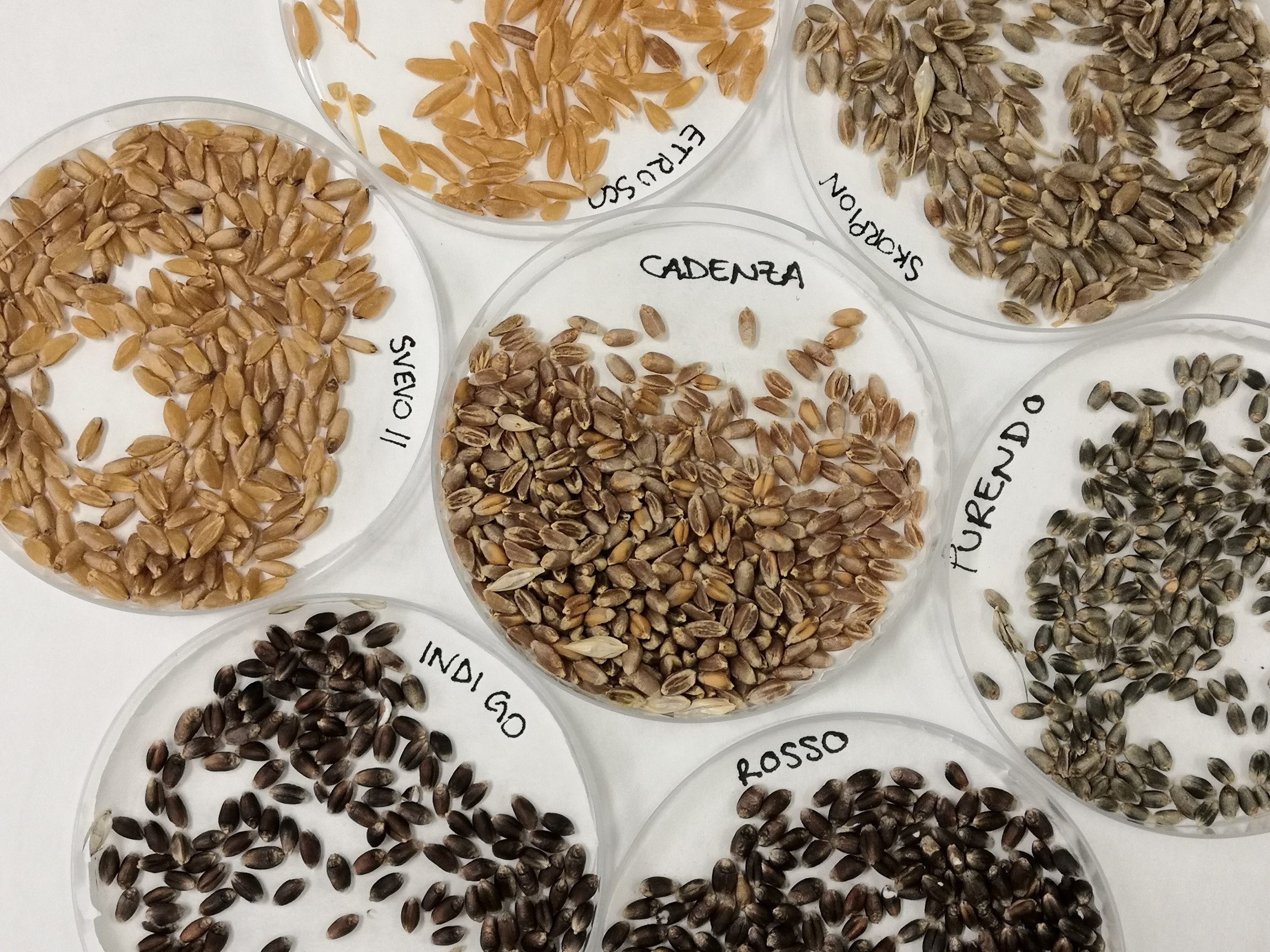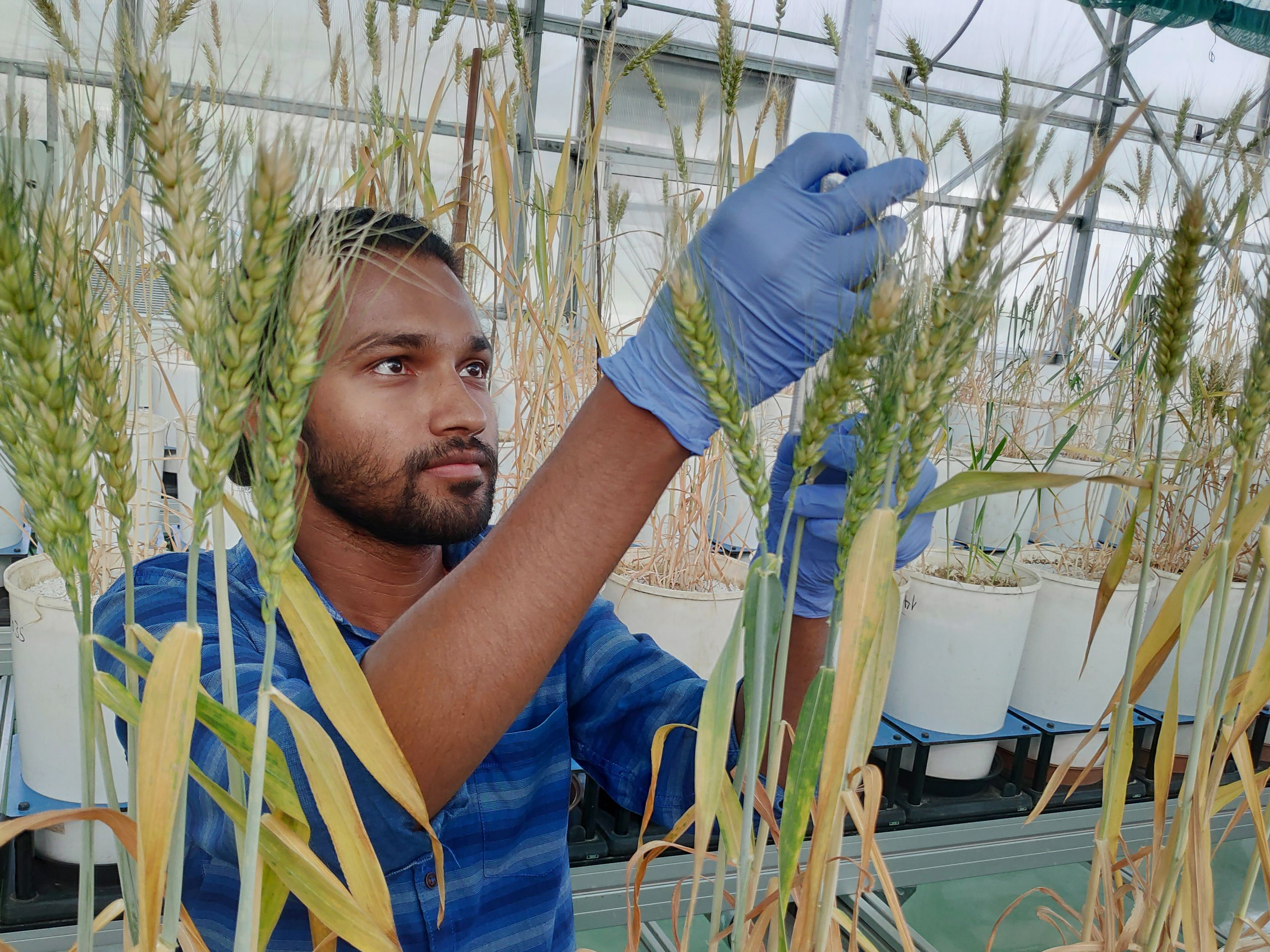
Tackling the phenotyping bottleneck
Plant phenotyping describes the scientific exploration of plant performance with respect to structure, function, quality and interaction with the environment. It helps researchers to understand which plants grow best under various climate conditions.
The world’s population is growing, and we will have to double the yields of major crops within the next thirty years to ensure that there is sufficient food for all. At the same time, the climate is changing, and we will be facing more droughts and extreme temperatures. This in turn has a negative effect on crop yields, increasing the pressure to improve crop production even more.

United colours of grains. Picture/credit: Marina Tikhonova, Estonian Crop Research Institute
In recent years, technological advancements have boosted the characterisation of genomes, but they have left a gap because plant phenotyping cannot follow the pace of DNA sequencing machines. For this reason, plant phenotyping has become the bottleneck for the exploitation of crop genetic diversity.
The European Infrastructure for Plant Phenotyping, EMPHASIS, has been launched to tackle this bottleneck. Supporting the advancement of plant phenotyping, EMPHASIS aims to enable access to multi-scale plant phenotyping facilities, complement the genetic and genomics data and promote future food security and agricultural business in a changing climate.
How researchers can benefit
EMPHASIS will provide access to instrumented phenotyping facilities and enable researchers to use a variety of services and resources to better understand plant performance and translate this knowledge into application. This also includes the provision of training, data and computational services, modelling platforms as well as the development and sharing of novel technologies.
Up until now, time-limited infrastructure projects, such as EPPN2020, have offered researchers transnational access to European phenotyping facilities. EMPHASIS will offer a long-term solution that will provide researchers access to the facilities they need – all across Europe. The EMPHASIS Infrastructure Map already gives an overview of European phenotyping installations.

The preparatory phase of EMPHASIS started in 2017 within the framework of the H2020-supported project EMPHASIS-PREP. In 2020, eleven European countries have formally declared their intention of moving EMPHASIS towards operation marking the launch of an implementation phase which will bridge the preparation of EMPHASIS to full operation.
As part of this process, EMPHASIS is now testing first services for researchers. For example, the EMPHASIS modelling platform Quantitative Plant offers image analysis software tools, image data sets and plant models that can be used free of charge.
EMPHASIS has also recently launched a webinar series on plant phenotyping together with the plant phenotyping initiatives IPPN and EPPN2020, in order to compensate for the cancellation of scientific conferences and opportunities to discuss latest developments in the field during the Covid-19 pandemic. Researchers from all related fields and at any career stages are welcome to contribute.
Further services are currently being developed and include data and computational services, training activities, and networking opportunities between various phenotyping stakeholders from academia and industry.
More information about EMPHASIS and the services it provides can be found on the EMPHASIS website.





Join the FEBS Network today
Joining the FEBS Network’s molecular life sciences community enables you to access special content on the site, present your profile, 'follow' contributors, 'comment' on and 'like' content, post your own content, and set up a tailored email digest for updates.